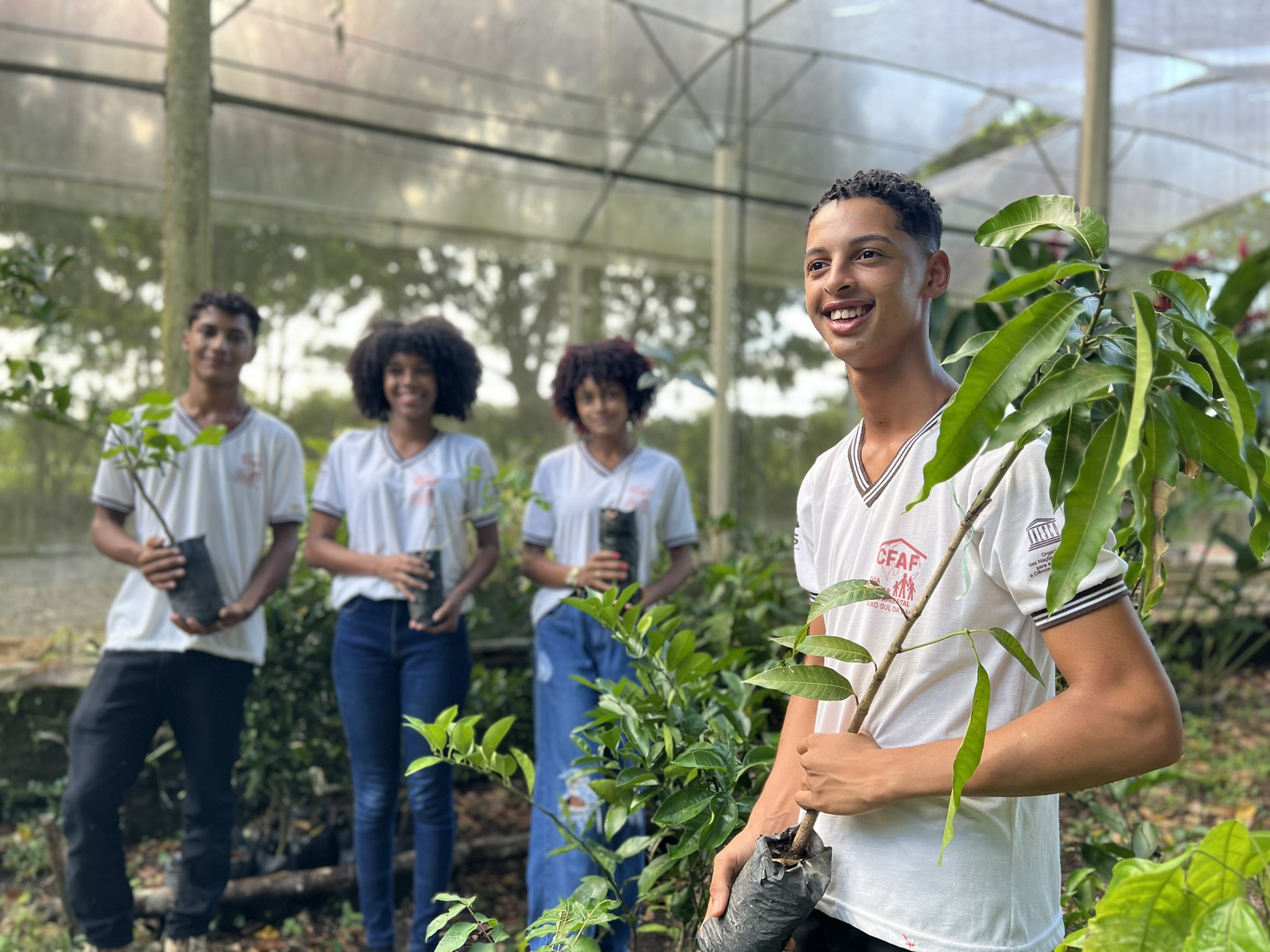Contributing to expanding access to the Our Culture collection, the Norberto Odebrecht Foundation (FNO) has just launched the digital...
FNO social program helps reduce rural exodus of young people in Bahia
DATE: 08/25/2024
“If young people continue to leave the countryside, what will become of agriculture?” This is a concern for Ana Mirela Silva da Conceição, 17, the daughter of farmers from the municipality of Taperoá, in Bahia. A social phenomenon that mainly affects the youngest members of rural families, migration to urban centers represents, for many, the belief that it is the only solution to obtaining better prospects for study, work and opportunities to prosper.
The rural exodus is a reality that Brazil has been facing for a long time: the massive movement from the countryside to the cities took place mainly during the second half of the 20th century. According to data from the Brazilian Institute of Geography and Statistics (IBGE), in the 1960s the rural population represented 54% of the national total. In 2022, the percentage fell dramatically, to 13.6%. As a result, the countryside suffered from a shortage of skilled labor, as well as lower agricultural production and a greater risk of food insecurity in the country.

Young Ana Mirela has found in contextualized education in the countryside an opportunity to improve the quality of life in rural areas
Motivated not to be just another statistics case, Ana Mirela joined the Baixo Sul da Bahia Agroforestry Family House (CFAF) to overcome what she had heard since she was a child, that it wasn’t possible to have access to a good education and quality of life in the countryside. The CFAF is one of the high school institutions integrated with the technical school that runs the Program for Development and Integrated Growth with Sustainability (PDCIS), coordinated by the Norberto Odebrecht Foundation.
Operating for over 20 years in the Southern Bahia Lowlands with the aim of promoting sustainable territorial development, PDCIS has already had an impact on over 650,000 people. With a focus on the socio-productive inclusion of young people in rural areas, it promotes entrepreneurship and economic growth in harmony with the environment. “I realized that because my father didn’t have access to the education I receive, he wasn’t able to achieve the productivity that I have today in my crops and that generates income. I want to become more and more qualified in this area,” says Ana Mirela.
In a context where only 17.2% of the rural population has completed high school, according to a 2023 survey by the National Federation of Agricultural Workers (Contag), the professionalization of young people in technical training courses that dialogue with the reality in the countryside is proving to be effective in encouraging them to remain in their regions.
“We owe this to a number of factors, but I would highlight the Family Houses methodology as a major differential. With the Pedagogy of Alternation, the students spend one week at school full time, with theoretical and practical lessons, and two weeks on their families’ properties, applying the new knowledge to their productive projects implemented with investments from the Program, under the supervision of specialized monitors,” explains Cristiane Nascimento, responsible for PDCIS at the Norberto Odebrecht Foundation.
The 2023 PDCIS Beneficiary Survey showed that, among the active students at the Family Houses located in Presidente Tancredo Neves, Nilo Peçanha and Igrapiúna, 76% have no intention of leaving the countryside. “It’s noticeable how entering these institutions has changed the students’ vision of the future. Many of them now want to continue doing beautiful work with their families in the fields,” says Andreia Santos Soares, mother of Gabriel Soares, a student at the Presidente Tancredo Neves Rural Family House (CFR-PTN).

Access to quality education and new technologies encourage beneficiaries of the Norberto Odebrecht Foundation program to become entrepreneurs in the countryside
Optimism for the future
In addition to encouraging education, resources that were previously non-existent or not widespread in rural areas, such as internet access and new technologies that optimize productivity and the management of agricultural practices, have helped to reduce the flow of rural exodus in recent years.
Among the active students in the Family Houses in 2023, 94.4% said they had access to the internet, and 57% had already used technology in agriculture. For Wendrio Souza Santana, a student at CFR-PTN, the technological solutions offered by the institution make the experience of rural production different: “Measuring the area using GPS, calculating fertilization and liming, soil analysis, cash book. All these tools are excellent for managing my property,” he says.
The process of modernizing the countryside has helped to make life and work in agriculture more attractive to the younger population, who can see the farm as a place where they can take the lead in entrepreneurship and achieve their professional and personal goals, with the advantage of maintaining succession and family tradition. Ana Mirela, for example, says that leaving the countryside is only possible with a guarantee of return: “I want to study agronomy, but I want to go back to my community and stay in agriculture,” he concludes.



No comments